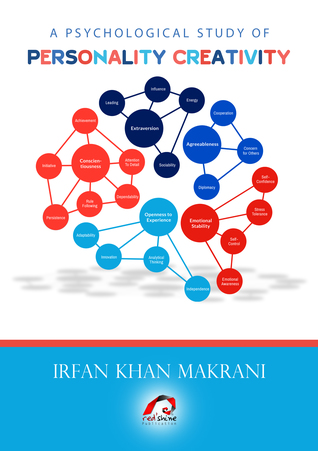Read Online A Psychological Study of Personality Creativity - Irfan khan Makrani | PDF
Related searches:
1984 793 4765 1036 591 1012 1082 4922 1857 2304 3652 462 248 4315 1785 542 2559 4918 2147 2989 4038 307 3671
Personality personality refers to individual differences in characteristic patterns of thinking, feeling and behaving. The study of personality focuses on two broad areas: one is understanding individual differences in particular personality characteristics, such as sociability or irritability.
Hardly any studies exist on personality traits and coping methods in this group of individuals. Aims: to study the association of personality traits and coping methods to psychological stress in police personnel.
After all, much of psychology’s current thinking owes a considerable debt to the long, complex, and interweaving trail of ideas, thinkers, and research into personality. While we could begin much earlier, we will instead start in the early years of the 20th century.
Objective: the aim of the present study was to investigate the stress level in a group of nurses and to correlate the stress level andits subsequent symptoms with personality factors.
Personality psychology is the focus of some of the best-known psychology theories by a number of famous thinkers including sigmund freud and erik erikson. Some of these theories attempt to tackle a specific area of personality while others attempt to explain personality much more broadly.
Personality psychology is a branch of psychology that studies personality and its variation among individuals. It is a scientific study which aims to show how people are individually different due to psychological forces. Its areas of focus include: construction of a coherent picture of the individual and their major psychological processes.
The study of personality is one of the major topics of interest in psychology. Numerous personality theories exist and most of the major ones fall into one of four major perspectives.
This course provides an introduction to key topics in the study of personality psychology and individual differences.
From eccentric and introverted to boisterous and bold, the human personality is a complex and colorful thing. Personality refers to a person's distinctive patterns of thinking, feeling, and behaving.
Personality is the field within psychology that studies the thoughts, feelings, behaviors, goals, and interests of normal individuals.
Personality psychology is one of the largest and most popular branches of psychology. Professionals who study personality psychology want to understand how personality develops as well as how it influences the way we think and behave. Psychologists look at how personality varies among individuals as well as how people are similar.
Studying for psychology classes isn't that different from studying any other subject, but there are some tips and tricks that can help you succeed.
Personality psychology is the study of human personality and how it varies among individuals and populations. Personality has been studied for over 2000 years, beginning with hippocrates in 370 bce and spanning through modern theories such as the psychodynamic perspective and trait theory.
Narcissistic personality disorder in clinical health psychology practice: case studies of comorbid psychological distress and life-limiting illness behav med� jul-sep 2017;43(3):156-164.
University of california at berkeley psychological scientists leeanne harker and dacher keltner used facs to analyze the college yearbook photos of women, then matched up the smile ratings with personality data collected during a 30-year longitudinal study.
Aug 17, 2018 a few studies have addressed these questions at the level of broad personality traits.
A person who makes a living studying dinosaurs is called a paleontologist. But there is much more to being a paleontologist than just studying dinosaurs. People who work in the field of paleontology also study the fossils of plants, animals.
How does personality influence behavior? learn about the traits and types of various personalities as well as the major theories of freud, maslow, and more.
They represent the accumulated experiences people have had trying to meet their needs, and they play a key role in personality — both the invisible and the visible parts of personality. The invisible part of personality consists of the needs and beats. They form the basis of personality and they drive and guide the visible part.
Learn about personality psychology, including the traits and types of personalities as well as the major theories of freud, maslow, and more. Steven gans, md is board-certified in psychiatry and is an active supervisor, teacher, and mentor.
Research in personality ranges from analyses of genetic codes and studies of biological systems to the study of sexual, social, ethnic, and cultural bases of thought, feelings, and behavior. Personality research includes studies of cognitive abilities� interpersonal styles, and emotional reactivity.
Whether it's figuring how people get to their happy place, dominating that job interview or staying mentally healthy, there's a mooc for that stay up to date disclosure: class central is learner-supported.
Mar 30, 2021 psychologists typically define personality as a person's characteristic thoughts, feelings, and behaviors.
Research is one of the most common career paths chosen by personality psychologists, according to the society for personality and social psychology, or spsp.

Post Your Comments: